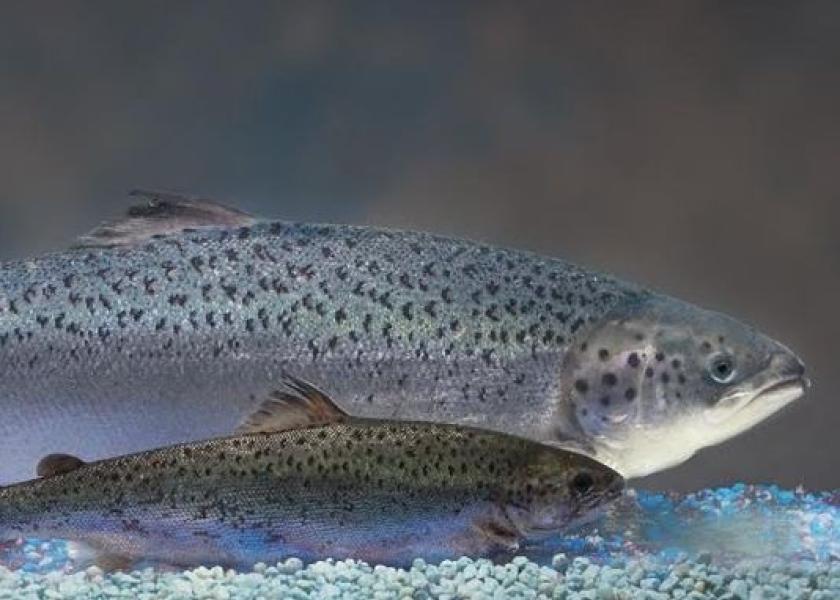FDA Approves Facility for GMO Salmon

While genetically modified crops have become commonplace, regulations and consumer concerns have slowed use of genetic engineering in food animals, in spite of potential for improving production efficiency and sustainability.
More than 20 years ago, a company called AquaBounty Technologies developed the AquAdvantage salmon, a genetically modified variety of Atlantic salmon with a single gene from a Chinook salmon spliced into its genome and accounting for a total of about one ten-thousandth of its DNA. This fish grows dramatically faster than other Atlantic salmon, reaching market size in half the time with 20 percent better feed efficiency and 5 percent better nitrogen retention.
Regulatory barriers and an abundance of caution have, however, prevented commercial production and availability of the salmon in the United States.
This week, the company moved one step closer to U.S. production, with FDA approval of a new animal drug application (NADA) for the company’s aquaculture facility near Albany, Indiana. According to the FDA, genetically engineered animals are regulated under the new animal drug provisions of the Federal Food, Drug, and Cosmetic Act (FD&C Act) because an rDNA construct that is intended to affect the structure or function of the body of the resulting animal meets the definition of a drug.
Approval of the facility does not mean though, that the fast-growing salmon will soon appear in U.S. retail cases or on restaurant menus. The FDA announcement notes that while the Indiana facility is approved for production, the company is prohibited from importing the eggs necessary for producing genetically engineered (GE) salmon at the facility because of a requirement in FDA’s current appropriations law.
"With the facility now approved, commercial production of AquAdvantage Salmon awaits only official labeling guideline by the FDA," AquaBounty Technologies, Maynard, Mass., said in a news release.
Currently AquaBounty operates two FDA approved facilities, one on Price Edward Island in eastern Canada where they produce salmon eggs, and a grow-out facility in Panama. Because of its superior performance, it can be grown in tanks rather than in ocean pens. Once operational, the Indiana facility will have capacity to produce 1,200 tons of fish per year, with potential for expansion.
Studies on 14 generations of the AquAdvantage salmon led to the FDA in 2010 determining the fish is an Atlantic salmon, is as safe to consume as any other Atlantic salmon and represents no significant risk to the environment under conditions of use in the application for approval. Those conditions for use include growing the fish only in a FDA-approved, physically contained, fresh-water culture facility and maintaining a population of only female fish for food production, to avoid any crossbreeding with wild populations.
From the beginning, though, environmental groups and other interests, including the Alaskan wild-caught Pacific salmon industry, opposed and lobbied heavily against approval of the AquAdvantage salmon, citing concerns over food safety, crossbreeding and environmental damage.







